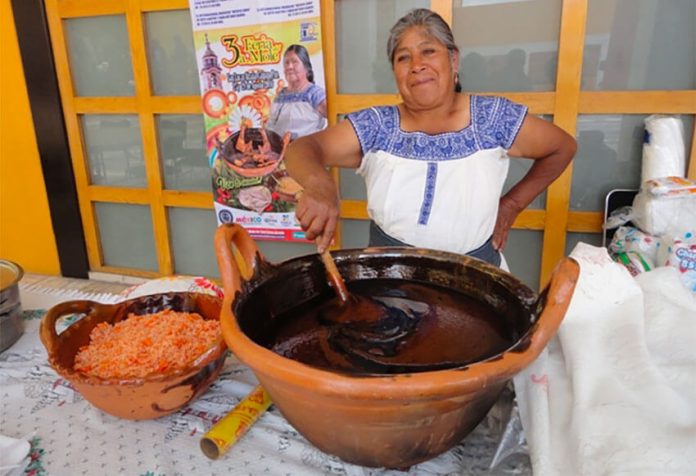Náhuatl – the language spoken by the inhabitants of the Mexica capital Tenochtitlán – is dying out in San Lucas Atzala, a small town about 30 kilometers west of Puebla city.
Before 1940, everyone in Atzala communicated in Náhuatl, the newspaper El Sol de Puebla reported. But today only an estimated 1,100 of the town’s approximately 2,500 residents – 44% of the total – continue to use the language. Almost half of its speakers are over 60, according to a former local official, and most of the others are in their 40s and 50s.
Some speakers of the ancient indigenous language, including ones who had never spoken Spanish, lost their lives to COVID-19 during the past two years.
Atzala residents who spoke with El Sol agreed that Náhuatl – which is still spoken by more than 1.5 million residents of central Mexico – is dying a slow death in the town. They cited a range of reasons for the language’s seemingly inevitable demise, including discrimination against Náhuatl speakers, a lack of Náhuatl teachers in schools, the migration of residents to the United States, scant interest to learn Náhuatl among young people and a failure of municipal authorities to guarantee its preservation.
“My grandchildren and great-grandchildren don’t want to speak Náhuatl. When I speak to them in Náhuatl they tell me they don’t know what I’m saying or what I mean,” said Maximiliana Joaquina Morales Ramos, a 73-year-old housewife.
She doesn’t know how to read or write Náhuatl, but uses the language to speak with her husband and other Atzala residents of a similar age.
“My [six] children didn’t learn because they were spoken to in Spanish at school and the same thing happens with a lot of children and young people now,” Morales said. “They no longer [want to speak Náhuatl], they’re embarrassed or they prefer to be on their phones.”
Pascuala Palillero, who is also in her early 70s, declared bluntly that “we’re losing our language.” She said that she speaks Náhuatl with her husband but has to use Spanish with her five children.
“We want to rescue our language and traditions because it’s sad that only a few of us speak [Náhuatl],” said 71-year-old Rogelia Ventura Ramos. “Even though we taught our children when they were little they forgot when they went to school and now they don’t want to speak it,” she said.
Ventura said she’s not at all embarrassed about her roots and being a Náhuatl speaker, but added that there are some people who look down on indigenous languages and customs. She also said she would be happy to offer classes to young people if it meant Náhuatl would be preserved.
“I would stop washing dishes and sweeping in order to teach what my parents taught me,” Ventura said. “I would like to see children and young people speaking Náhuatl and to put an end to what we see now, which is seeing them on their phones. ”
Agustín Medina Pérez, a former local official and one of just two expert writers of Náhuatl in Atzala, warned that the language could die out within 30 or 40 years from now because it’s older people who are currently keeping it alive.
He said he started learning the 4,000-year-old language from the day he was born. “I learned Spanish at school because the teachers discriminated against us if we used the ancient language. They said everything had to be in Spanish because … [Náhuatl] was no longer useful,” Medina said.
“I do hold a grudge because a lot of people wan’t to kill off our language,” he said, adding that efforts should be made to preserve what is truly Mexican.
“Náhuatl is a nice language to tell jokes and stories. It brightens the soul,” remarked Medina, who also writes poetry in the pre-Hispanic language.
“It enhances, respects and shows reverence to things and it’s very different to the Spanish language because … it has 20 consonants, four vowels and there are no words with the letters ñ, r, b and v because x, z and tl dominate,” he said.
With reports from El Sol de Puebla
